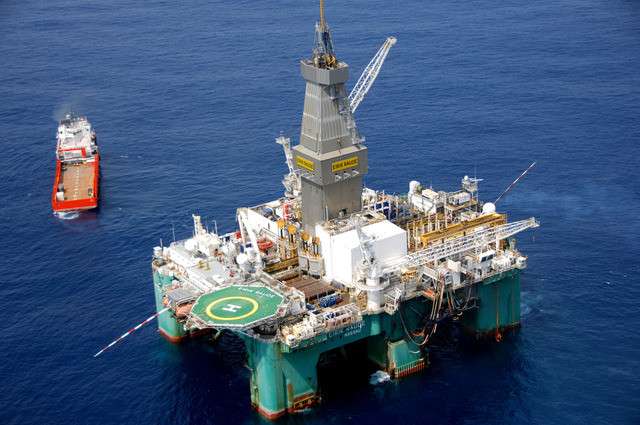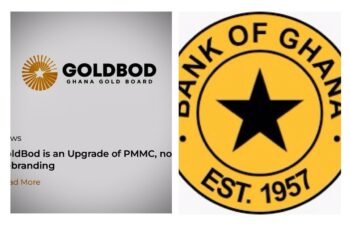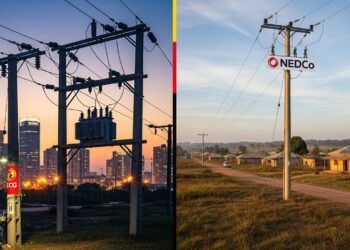Moody’s has revised Kosmos Energy’s rating outlook to stable from positive while simultaneously affirming the company’s B2 Corporate Family Rating (CFR), B2-PD probability of Default Rating (PDR) and B3 senior unsecured notes.
The revision in the company’s outlook was influenced by the ratings downgrade of the Government of Ghana (Ghana, Caa1 stable), where the majority of Kosmos Energy’s production and cash flow are concentrated currently.
Moody’s recently downgraded Ghana on concerns over the country’s increased fiscal, refinancing and debt challenges. Moody’s lowered Ghana’s local currency (LC) and foreign currency (FC) country ceiling to B1 and B2, respectively from Ba3 and B1.
Commenting on the Rating action, Moody’s President, Sajjad Alam said:
“Kosmos Energy’s stable outlook balances its inherent credit strength with Ghana’s heightened sovereign risk. Kosmos will have a 38.3 per cent in the Jubilee field and a 19.8 per cent interest in the TEN field (assuming partners’ pre-emption rights are exercised), representing roughly 55 per cent of the company’s projected 2022 production. These Ghana fields are operated by Tullow Oil plc (B3 stable), which has even greater production concentration in Ghana”.
Sajjad Alam, President, Moody’s
Moody’s underscored that, despite facing elevated sovereign risks, Kosmos Energy’s standalone credit fundamentals will continue to improve through 2023. The favorable and high oil prices as well as incremental production from the late-2021 Ghana acquisition will enable the company to achieve significantly higher operating cash flow and production relative to 2021 levels.
Similarly, this will provide enhanced financial flexibility to reduce debt and fund growth spending. Moody’s averred that once the Tortue Phase I LNG project begins production in the second half of 2023, the company’s Ghana exposure will moderate further and LNG production will start to grow rapidly.

Factors Influencing CFR rating
Among the highlights for Kosmos Energy’s B2 CFR are its majority production in offshore Ghana, which is considered high but improving financial leverage, substantial ongoing capital spending requirements involving the phased Tortue LNG development project, significant debt amortization obligations starting in 2024, and somewhat complex corporate and capital structure.
The rating also considers the risks of the company’s non-operating interest in key assets, deepwater focus and the attendant physical and operational risks. Supporting the credit profile is Kosmos Energy’s high-quality and oil-focused producing assets that have low break-even costs and relatively low base decline rates.
These features extend to the geographic diversification of these assets across several West African countries and the US Gulf of Mexico as well as strong growth prospect involving the large natural gas and LNG assets in Mauritania and Senegal, a solid track record of organic and acquisition-driven growth and a visible pipeline of low-risk development projects.
All these considered, Moody’s expects financial leverage to decline and free cash flow to increase materially through 2023 as the company benefits from increased volumes, higher oil and gas prices and the completion of Tortue Phase 1 in the second half of 2023.
“The stable outlook reflects Moody’s view that Kosmos Energy’s operating cash flow, liquidity and leverage metrics will steadily improve through 2023 backed by favorable global oil and natural gas prices”.
Moody’s
However, Moody’s highlights that Kosmos Energy’s CFR is unlikely to be upgraded in the near term unless Ghana’s sovereign rating was also upgraded. In the long term, the CFR could be upgraded if the company can reduce debt and substantially, increase production and cash flow from its non-Ghana assets, Moody’s said.
Aside this, and in terms of specific credit metrics, Moody’s would expect the company to lower the debt/average daily production below $30,000/boe and the RCF/debt ratio above 25 per cent before considering an upgrade, a statement released by Moody’s read.
On the other hand, the CFR could be downgraded should the company produce significant negative free cash flow, the RCF/debt ratio declines towards 15%, capital expenditures rise sharply, or liquidity becomes weak, Moody’s highlighted.
Nonetheless, the possibility of a CFR downgrade is also tied to Ghana’s sovereign rating, Moody’s said, adding that it does not anticipate that happening through 2023.
READ ALSO: Ghana’s Electricity Data Transparency, of Good Quality by Gaps Remain- Report























